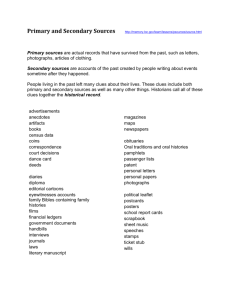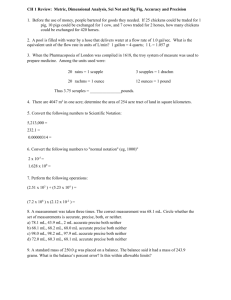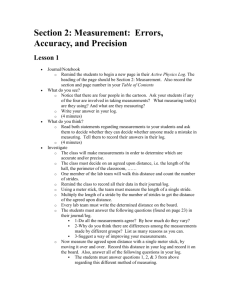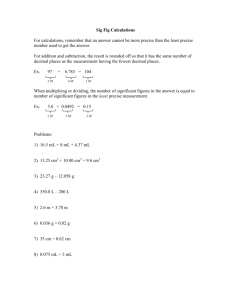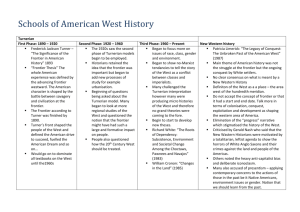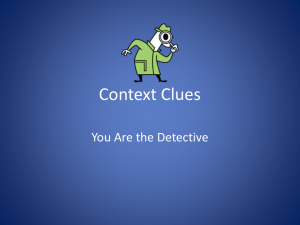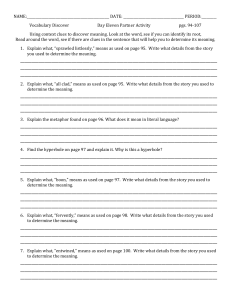RI4 - Vocabulary
advertisement
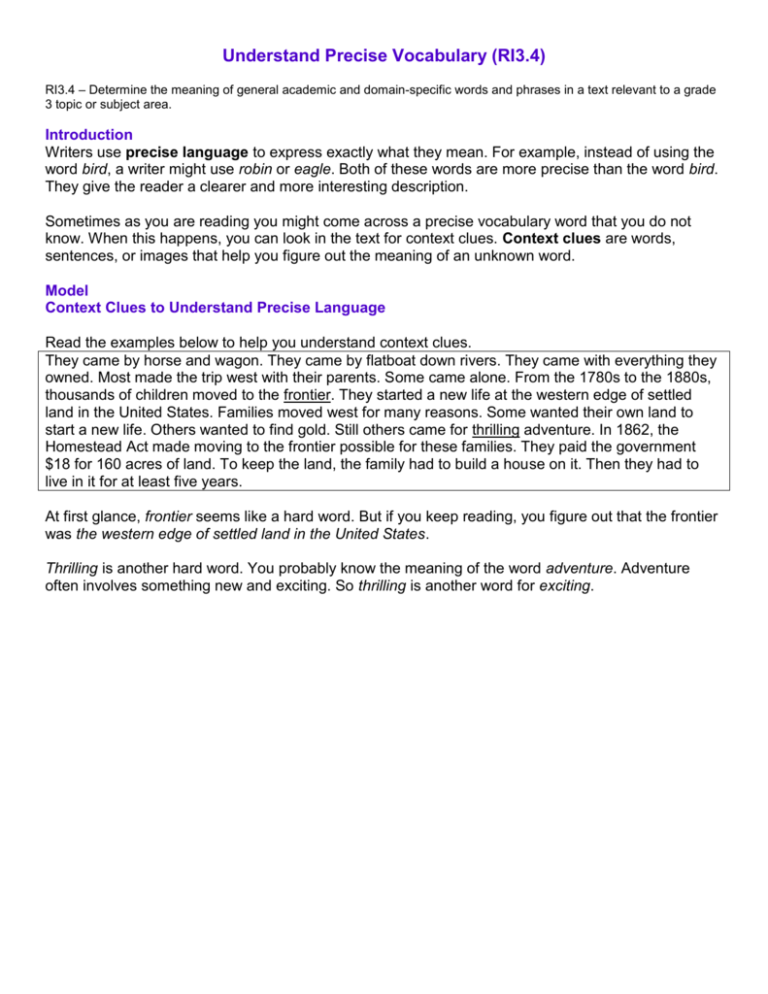
Understand Precise Vocabulary (RI3.4) RI3.4 – Determine the meaning of general academic and domain-specific words and phrases in a text relevant to a grade 3 topic or subject area. Introduction Writers use precise language to express exactly what they mean. For example, instead of using the word bird, a writer might use robin or eagle. Both of these words are more precise than the word bird. They give the reader a clearer and more interesting description. Sometimes as you are reading you might come across a precise vocabulary word that you do not know. When this happens, you can look in the text for context clues. Context clues are words, sentences, or images that help you figure out the meaning of an unknown word. Model Context Clues to Understand Precise Language Read the examples below to help you understand context clues. They came by horse and wagon. They came by flatboat down rivers. They came with everything they owned. Most made the trip west with their parents. Some came alone. From the 1780s to the 1880s, thousands of children moved to the frontier. They started a new life at the western edge of settled land in the United States. Families moved west for many reasons. Some wanted their own land to start a new life. Others wanted to find gold. Still others came for thrilling adventure. In 1862, the Homestead Act made moving to the frontier possible for these families. They paid the government $18 for 160 acres of land. To keep the land, the family had to build a house on it. Then they had to live in it for at least five years. At first glance, frontier seems like a hard word. But if you keep reading, you figure out that the frontier was the western edge of settled land in the United States. Thrilling is another hard word. You probably know the meaning of the word adventure. Adventure often involves something new and exciting. So thrilling is another word for exciting.


